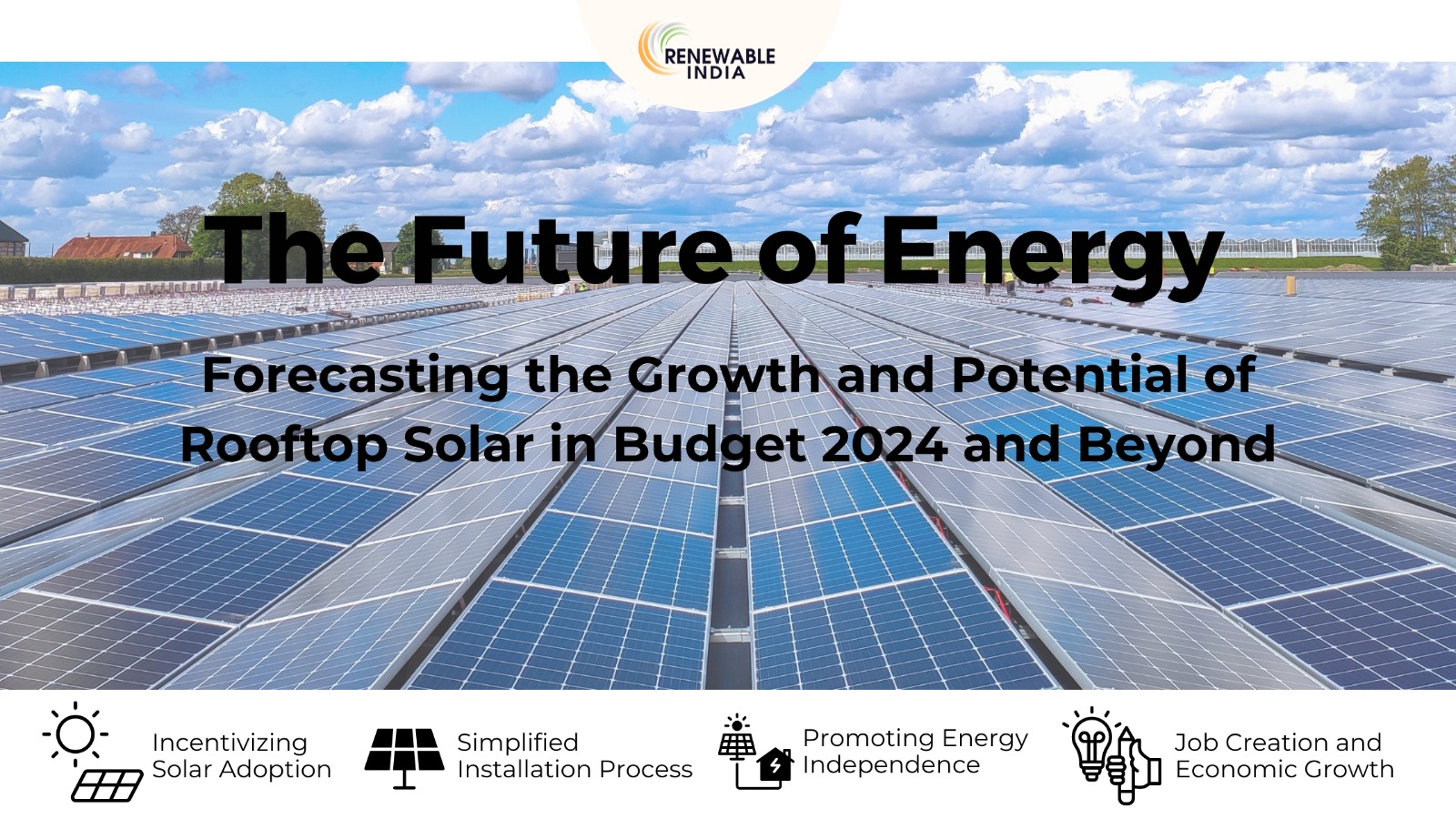
In a monumental leap towards sustainability and empowerment, the government has introduced a groundbreaking initiative – Rooftop Solarization, aiming to provide free electricity to one crore households across the nation. Aligned with the Prime Minister’s commitment, declared on the historic day of the consecration of the Ram Mandir in Ayodhya, this visionary scheme signifies a resolute dedication to a greener and more self-reliant India.
The fundamental goal of this programme is to enable one crore homes to use rooftop solarization to produce up to 300 units of free electricity each month. This effort significantly advances the larger objectives of promoting sustainability and reaching energy independence, even in the context of individual families.
The significant financial relief this system provides to homeowners is one of its main benefits. Families can sell extra energy back to distribution companies in addition to receiving free solar power for their own use. They can expect to save between fifteen and eighteen thousand rupees a year by doing this. This lessens the financial load on households and encourages a responsible and energy-efficient consumption habit.
Rooftop solarization has an impact on the transportation industry beyond only illuminating homes; it facilitates the usage of electric vehicle chargers. This promotes the use of eco-friendly modes of transport, which is in line with the worldwide push for more sustainable mobility and lower carbon emissions.
Beyond immediate benefits for households, the initiative opens new avenues for business owners. Entrepreneurs can seize the opportunity to provide and install solar panels, inverters, and related equipment, expanding the renewable energy landscape and stimulating the market.
According to Mr. Manoj Kumar Sharma, the Founder of Ashnam Home, “The interim budget seems overall good, and it is good to see we are on a good growth trajectory. As an MSME, I feel the government is looking at the sector proactively, making provisions, and developing policies that would benefit them. The training for the MSME sector is a good move, and this will help us compete globally and make Bharat Atma Nirbhar.”
The government’s Rooftop Solarization initiative represents a transformative step towards sustainability, empowerment, and self-reliance, with profound implications for the MSME sector. By leveraging solar energy to provide free electricity to households and businesses, including MSMEs, the government is not only fostering economic growth but also paving the way for a greener and more prosperous future for India.
The initiative not only supports business owners but also offers opportunities for the youth. Technologically adept individuals can find abundant job possibilities in the manufacturing, installation, and maintenance of solar systems, addressing unemployment challenges and building a skilled workforce for India’s renewable energy industry.
Rooftop solarization and free electricity represent more than buzzwords; they signify a paradigm shift towards a sustainable and self-sufficient energy ecosystem. The benefits extend beyond individual households, encompassing economic, environmental, and social dimensions.
The financial savings for households translate into increased disposable income, fostering economic growth at the grassroots level. Simultaneously, entrepreneurial opportunities generated by the scheme contribute to the overall economic vibrancy of the nation.
Promoting clean and renewable energy sources, rooftop solarization plays a pivotal role in mitigating the environmental impact of traditional energy generation. Reduced reliance on fossil fuels leads to lower carbon emissions, fostering a cleaner and healthier environment for future generations.
The scheme’s emphasis on skill-based employment opportunities enhances youth employability, creating a skilled workforce prepared to tackle future challenges. Moreover, the widespread adoption of solar energy fosters a sense of community and shared responsibility towards a sustainable future.
Following a significant and highly spiritual consecration ceremony in Ayodhya, Prime Minister Narendra Modi came out stronger than ever in his support of renewable energy options for India. A courageous move towards becoming an environmentally conscious and self-sufficient nation, the announcement of the “Pradhanmantri Suryodaya Yojana” is in line with the holy light of Suryavanshi Lord Shri Ram.
“We applaud the visionary initiative of the Government of India in launching the ‘Pradhan Mantri Suryodaya Yojana.’ The commitment to providing rooftop solar to 1 crore households reflects a profound dedication to sustainable and inclusive development. A decent shelter is vital for improved health and well-being. Homes equipped with solar energy will bring in environmental as well as financial sustainability to families. This initiative will alleviate the burden of electricity bills for low-income families and it will also chart a course towards self-reliance. This transformative approach will contribute towards a greener and more resilient India. It is the right step in the direction where every home is a source of clean and renewable energy, fostering a brighter and more sustainable tomorrow for the people of India.” – Mr. James Samuel, National Director (Interim), Habitat for Humanity India.
The ambitious goal of the initiative is to equip one crore homes nationwide with rooftop solar power installations, ranging from impoverished to middle-class households. This strategic move not only addresses the electricity costs of the underserved but positions India as a global leader in the energy market. Prime Minister Modi emphasizes that beyond reducing bills, this scheme fosters self-reliance in the energy sector. Urging a nationwide campaign, he envisions widespread adoption of rooftop solar, reducing reliance on grid-connected electricity and resulting in significant cost savings for consumers.
Inspired by the Ayodhya consecration, initiatives like Rooftop Solarization and the “Pradhan Mantri Suryodaya Yojana” propel India into a transformative era. Beyond individual households, these efforts signal a paradigm shift towards economic resilience, environmental responsibility, and social progress. Rooftops now generate ‘free electricity,’ fostering economic vitality, while the emphasis on skill-based employment forges a workforce ready for the future. India, embracing clean energy, emerges as a global steward, reducing its carbon footprint. With these initiatives working in harmony, the nation embarks on a journey where energy becomes a catalyst for holistic development, illuminating a path towards a brighter, greener, and more sustainable future for all.
Pradhan Mantri Suryodaya Yojana’s Vision for Solar Empowerment in India
Leave a Reply